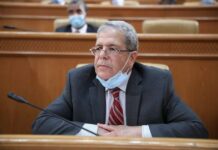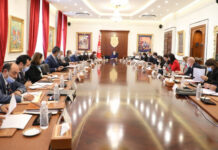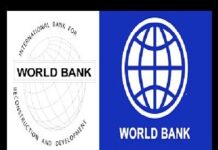A few days before the start of the school year, which will certainly not be very different from the two previous ones due to the Coronavirus pandemic, the same question comes up as a leitmotif: What remains of the public school? Today, the education ministry and unions agree on the finding. They are committed to saving the school and reforming the education system. But they do not speak the same language, hence this highly damaging blockage. In the meantime, the school is sinking into crisis and only welcomes poor children. It no longer functions as a social elevator. And the whole of society feels it.
The evils are accentuated
As we already know, the ills of school do not date from today, even if they have become more pronounced in recent years. They are known to all stakeholders, parents, students, teachers, and directors of schools, unions and of course the Ministry of Education who complain all the time. Looks like a devious plan has been made to destroy the public school and brutalize our children.
However, three reforms have been initiated since independence (1958, 1991 and 2002) and which have yielded sometimes mixed results. No need to recall the therapeutic remedies that have so far been applied, but which only worsened the situation and the improvisations that only rotted the climate around the school. The Tunisian school has become like a laboratory and the students have become guinea pigs on which several experiments have been carried out without success. We do not change the school piecemeal to “satisfy the whiners of the moment”, because this could deviate from its main mission “to educate, socialize and qualify”
An unequal system
Our education system has proven to be an unequal system over the years. Two data noted in the “2016-2020 strategic plan” document prepared by the Ministry of Education, show that inequalities are widening between regions. At the level of preschool education, where the average coverage rate is only 45.6%, this is the big gap between the so-called “well-off” governorates and the others.
Tunis 2 it is 96.8%, while in Kasserine it is only 44.2%. It is the same for the internal output in primary education where the average rate of passage of class is of 91.5% and it is again Tunis 2 which is at the head with 96.7% against 85.3% for Kasserine which closes the ranking behind. Kairouan with 85.9% and Tataouine with 87.7%. But it is at the level of baccalaureate results that these inequalities become more glaring. 14 regions are below the national average of 57.5%. Between Sfax 2 and Sfax 1 with 73.7% and 72% respectively in 2015 and Jendouba 43.1% and Gafsa 43.8%, there is no picture.
As we can see, the numbers are stubborn and speak for themselves. The disparities are noticeable and “have their source in the lower cycles, namely basic school and secondary school, and are clearly revealed at the level of the results of the baccalaureate”. Massive schooling was not enough to reduce inequalities with regions which are, in fact, poor in terms of infrastructure and means of transport, especially when we know that half of primary schools are in rural areas. and that most of them lack potable water. Students have been seen to travel for miles to reach their school, braving all dangers but with the hope of succeeding in their studies. Only 7 governorates out of the 24 have an adduction rate of 100%, while others like Kasserine with 61.1% and Kairouan with 62.9% have to wait years to be fully served.
Real mammoth
When we know that more than 500 schools are over fifty years old and must therefore be urgently rehabilitated because of threatening ruin and boarding schools are in poor condition, we understand the enormity of the task that awaits those in charge. education. A true mammoth, education has always enjoyed a large budget, but 97% of it goes to salaries. What is left for maintenance and new construction?
On its own, the line ministry, despite a large budget, will never be able to carry out all the renovation, repair, upkeep and maintenance work. Without the commitment and participation of all those involved in school life, school directors, teachers, parents of students, civil society, businessmen …
Rifi-JDD











